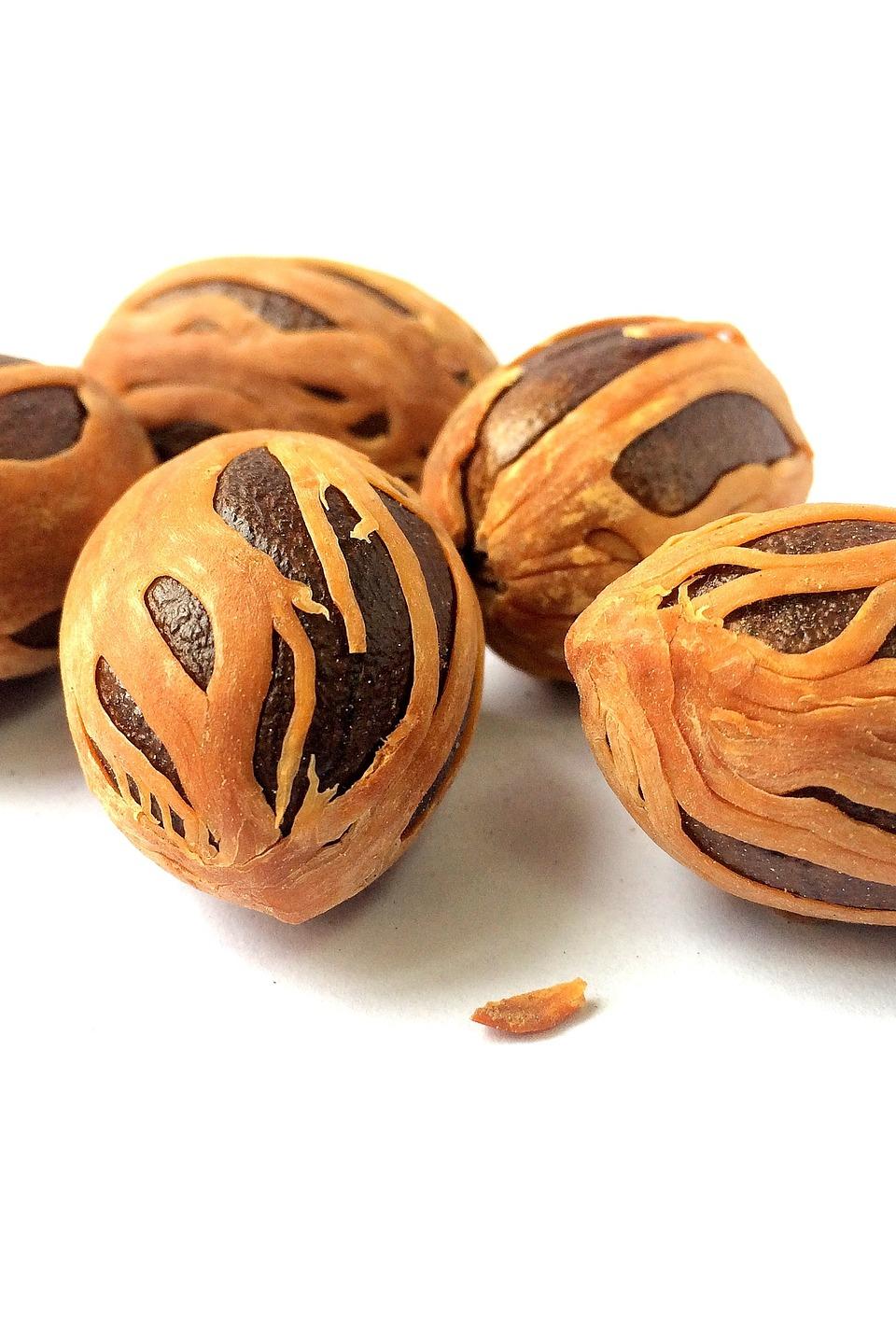Myristica fragrans

Botanical Name
Myristica fragrans Houtt
Family
Myristicaceae
Regional Name
English : Nutmeg, Mace, Hindi :Jaiphal, Javitri, Sanskrit :Jatisasya, Jatiphala, Urdu :Jauzbuwa, Jaiphal, Punjabi :Jaiphal, Assamese :Jaiphal, Kanivish, Bengali :Jaiphala, Jaitri, Gujrati :Jaiphala, Jayfar, Kannada :Jadikai, Jaykai, Jaidikai, Kashmiri :Jafal, Malayalam : Jatika, Marathi :Jaiphal, Oriya :Jaiphal, Tamil :Sathikkai, Jathikkai, Jatikkai, Jadhikai,, Jadhikkai, Telugu :Jajikaya.
Part Used
Seed Endosperm.
Description
Jaiphal is dioecious or occasionally monoecious aromatic tree.. It is widely grown across the tropics including Guangdong and Yunnan in China, Taiwan, Indonesia, Malaysia, Grenada in the Caribbean, Kerala in India, Sri Lanka and South America. In India it is found mostly in Tamil Nadu and to some extent in Kerala, Andhra Pradesh and Assam. It is a small evergreen tree, usually 5–13 m (16–43 ft) tall, but occasionally reaching 20 m (66 ft). The fruits are yellow ovoid or pear-shaped about 6–9 cm (2.4–3.5 in) long with a diameter of 3.5–5 cm (1.4–2.0 in), Inside is a purple-brown shiny seed, 2–3 cm (0.8–1.2 in) long by about 2 cm (0.8 in) across, with a red or crimson covering (an aril). The seed is the source of nutmeg, the aril the source of mace. Phytoconstituents The main chemical constituents of jaiphal are a-pinene, camphene, b-pinene, sabinene, myrcene, a-phellandrene, a-terpinene, limonene, 1,8-cineole, y-terpinene, linalool, terpinen-4-ol, safrole, methyl eugenol and myristicin.
Ayurvedic Properties
Rasa - Katu, Tikta, Guna - Laghu, Tiksna, Virya - Usna, Vipaka - Katu, Karma - Dipana, Grahi, Vrsya, Mukhahakledanasaka, Kaphavatapana, Mukhadaurgandhyanasaka.
Ayurvedic Applications
Atisara, Svasa, Kasa, Pinasa, Chardi, Grahani, Sukrameha, Mukharoga.
Medicinal Uses
Jaiphal is used in Skin problems, Hearth burn, Rheumatism, Muscle spasm, Increasing appetite, Aphrodisiac, Premature ejaculation. It is very useful in clearing throat, cough, asthma, Irritable bowel syndrome and diarrhoea. It is useful in diabetes and urinary tract infection.